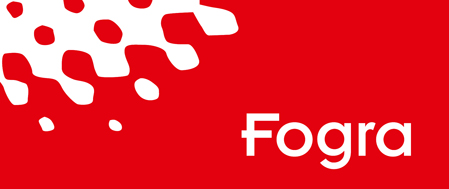NEWS
Progress in sustainable packaging: Voith and the 4evergreen alliance drive innovative projects forward
Full-line supplier Voith is intensifying its commitment to the 4evergreen alliance with a number of pioneering projects. Among other things, the focus is on innovative processes for dissolving barrier papers on an industrial scale. The alliance consists of over 110 members representing the entire life cycle of fiber-based packaging – from forest owners to producers, designers, brand owners and recyclers. Together, they share their expertise to develop tools and guidelines for an even more sustainable sector. As a member of the “Novel Recycling Technologies” Working Group within 4evergreen’s Innovation Workstream, Voith is instrumental in developing new solutions. Members from other workstreams also draw on Voith's expertise in stock preparation and recycling concepts.
Bernd Gueldenberg, Senior Vice President Research and Development at Voith Paper, emphasizes the importance of the cooperation: “Voith is proud to be a leading technology partner in the 4evergreen alliance, driving innovative solutions for the paper industry. Our expertise in stock preparation and recycling concepts enables us to actively address the challenges of the industry and achieve sustainable progress.”
Voith's commitment focuses on researching and developing innovative pulping concepts to increase the recyclability of fiber-based packaging. The diverse capabilities of the Voith Fiber Technology Center (FTC) play a crucial role in this. The FTC serves as a test environment for the recyclability of packaging papers and enables the investigation and development of sustainable solutions in close cooperation with other members of the alliance.
The FTC focuses on projects that address the challenges of sorting and recycling barrier paper and board products. Technologies and processes are being developed to increase the overall recycling rate of fiber-based packaging. The project is divided into three main steps: First, preliminary studies will be conducted to identify the most promising dissolution concepts. The best evaluated concept will then be tested as a pilot project at the Fiber Technology Center (FTC). After the test runs, the concept will be further optimized and additional investigations will be carried out to ensure the best possible processing of the recovered raw material.
As part of this cooperation, Voith is carrying out comprehensive investigations and trials. State-of-the-art technologies such as near-infrared measurements and NDR measurements are used to detect stickies and other impurities that are introduced into the system via the raw material. These enable the precise analysis of the properties of paper grades and the detection of impurities such as stickies, but also polyethylene, which is frequently used in barrier papers. The knowledge gained forms the basis for the development of novel pulping concepts and the analysis of the efficiency of cleaning aggregates. A total of around 70 NIR (Near InfraRed) measurements were carried out on selected raw materials to evaluate the different barrier properties.
Sustainable packaging in the EU
The 4evergreen alliance has set a target of 90% recycling rate for fiber-based packaging by 2030. Fiber-based packaging plays a crucial role in the circular economy. With a recycling rate of an impressive 82.5%, they are already making an important contribution to sustainability. Compared to other materials such as metal (74.8%), glass (74.9%) or plastic (39.7%), they perform significantly better. Fiber-based packaging also scores highly in terms of climate protection. Since 1990, carbon dioxide emissions have been reduced by 48%. In addition, more than 60% of the energy required comes from renewable sources, making the industry a pioneer in the use of regenerative energies. Last but not least, fiber-based packaging is winning over consumers. European consumers prefer packaging made of paper and cardboard due to its sustainable properties. For 62%, this type of packaging is better for the environment and 57% consider it easier to recycle than other types of packaging.
The FTC
The Voith Fiber Technology Center offers state-of-the-art research facilities for efficient process analysis and extensive testing capacities for new processes and paper grades. Here, primary and secondary fiber materials are prepared under practical conditions for all paper grades. This enables trials to improve yield, fiber properties, cleanliness and energy efficiency. Locations are in Heidenheim, Germany, and Motomiya, Japan. Available process steps include pulping, flotation, refining, thickening/washing, deflaking, dispersing, screening/fractionation, bleaching, and various centrifugal cleaners.








